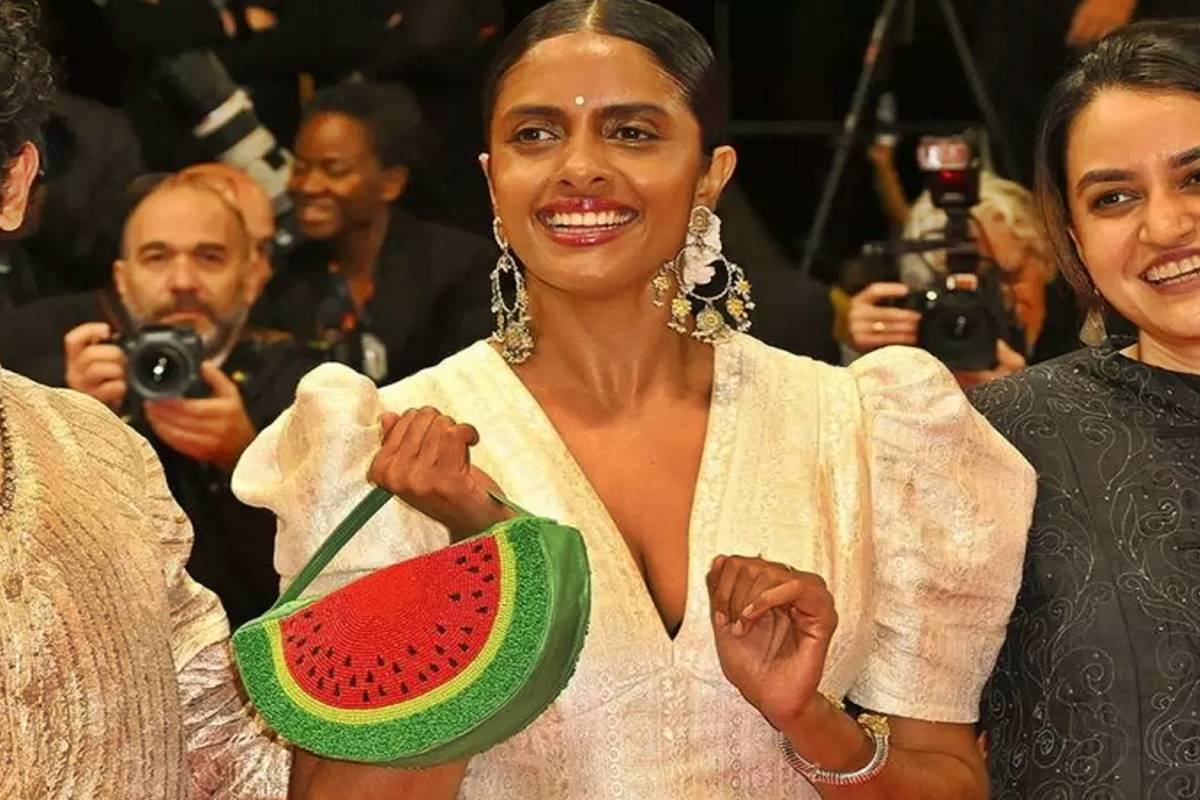Mohanlal drops bombshell: ‘Drishyam 3’ is officially happening!
Mohanlal excites fans by confirming 'Drishyam 3' is in the works, promising the next chapter in the gripping crime thriller saga. Details inside.
At Cannes 2024, Kani Kusruti makes a statement with a watermelon clutch. Her bold accessory highlights solidarity with Palestine. The gesture sparks widespread social media attention.

Kani Kusruti at Cannes
At the Cannes 2024 screening of the film “All We Imagine As Light,” Indian actor Kani Kusruti didn’t just make a red-carpet appearance—she made a statement. Clutching a watermelon purse, she sent a powerful message of solidarity with the people of Palestine, a gesture that quickly rippled across social media, earning her accolades for her advocacy of peace amidst the conflict in Gaza.
In the midst of flashing cameras, Kani stood proudly alongside her fellow cast members, the vibrant hues of the watermelon—a fruit whose colors mirror those of the Palestinian flag—emitting a silent but resonant call for empathy and understanding. The film itself, directed by Payal Kapadia, marked a significant milestone in Indian cinema, being the first Indian entry in three decades to vie for the prestigious Palme d’Or at Cannes.
Advertisement
Advertisement
View this post on Instagram
But it wasn’t just Kani’s bold accessory choice that caught attention; it was the symbolism behind it. The watermelon has emerged as a potent emblem of the Palestinian struggle, its imagery seeping into protests and artworks as a visual testament to resilience against oppression. This resurgence of the watermelon symbol, coupled with the proliferation of its corresponding emojis across social media platforms, underscores a concerted effort to amplify Palestinian voices in the face of digital censorship.
Indeed, discussions around “shadow banning”—the covert suppression of users’ content—have gained traction, particularly within advocacy circles focused on digital rights in the Middle East. Groups have raised concerns over biases in platforms like Facebook and Instagram, where certain content related to Palestine have disproportionately concealed. In response, individuals are embracing the watermelon symbol as a form of digital resistance, using its unmistakable imagery to circumvent censorship and ensure their voices are heard.
Through a simple yet profound gesture, Kani Kusruti has become a symbol herself—a symbol of solidarity, compassion, and the enduring power of art to transcend borders and spark meaningful dialogue.
As her image circulates far beyond the Cannes red carpet, it serves as a reminder of the interconnectedness of global struggles and the capacity for individuals, whether on-screen or off, to effect change through their actions and their art.
Advertisement